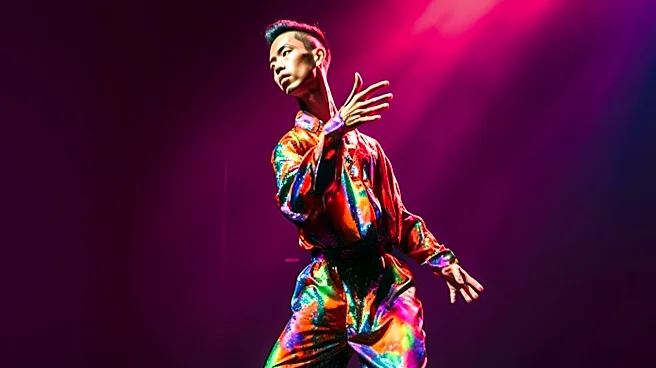What is the story about?
What's Happening?
Dance/NYC has completed the first round of grantmaking through its Dance Workforce Resilience (DWR) Fund, a pilot initiative aimed at promoting fair labor practices and supporting freelance dancers in New York City. The fund, launched in June 2025, offers one-time $1,000 grants to freelance dancers for eligible contracted work completed between January 1, 2025, and April 30, 2026. Over 120 applications were received in the first month, with applicants opting to remain in the pool for future lottery rounds. The fund prioritizes individuals often underpaid or excluded from traditional funding opportunities, including African, Latina/o/x, Asian, Arab, and Native American (ALAANA); disabled; immigrant; transgender; nonbinary; and older dancers. Supported by the Ford Foundation and New York Community Trust, the initiative aims to foster economic sustainability for dance workers and organizations.
Why It's Important?
The Dance Workforce Resilience Fund addresses significant wage inequities and labor challenges faced by freelance dancers in New York City. By providing financial support to underrepresented groups, the fund promotes inclusivity and fair labor practices within the dance sector. This initiative not only aids individual dancers in achieving financial stability but also strengthens the overall dance ecology by encouraging equitable treatment and compensation. The fund's focus on marginalized communities highlights the importance of diversity and representation in the arts, potentially influencing broader cultural and policy shifts towards more inclusive funding practices.
What's Next?
Applications for the DWR Fund are accepted on a rolling basis through March 3, 2026, with new grantees selected monthly until all funds are awarded. Dance/NYC offers application support services, including technical and legal assistance, webinars, and guides to ensure accessibility. The ongoing grant distribution will continue to support freelance dancers, fostering economic resilience and fair labor practices in the dance community. As the initiative progresses, it may inspire similar programs in other cities, promoting widespread change in the arts funding landscape.















